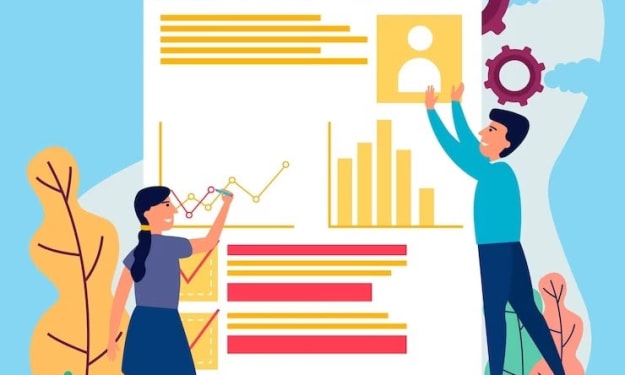Guidelines for Sustaining Requirements in an Agile Team
Maintaining requirements in an Agile team is essential for the successful execution of projects.

Maintaining requirements in an Agile team is essential for the successful execution of projects. Here are some guidelines to help you sustain requirements effectively:
1. Continuous Collaboration: Foster a culture of open communication and collaboration among all team members, including product owners, developers, and stakeholders. Regularly engage in discussions to refine and validate requirements, ensuring everyone's input is considered.
2. Prioritize and Refine: Begin by identifying the most critical requirements for the current iteration. Work closely with the product owner to prioritize user stories based on business value and complexity. Regularly refine and update requirements as the project progresses.
3. User Stories and Acceptance Criteria: Express requirements as clear and concise user stories. Define specific acceptance criteria for each story to ensure a shared understanding of when a requirement is considered done.
4. Embrace Change: Agile teams thrive on adaptability. Be open to changes in requirements throughout the development process. Encourage stakeholders to provide feedback regularly, and be ready to incorporate their insights to enhance the final product.
5. Agile Tools: Utilize appropriate tools for requirement management, such as agile project management software, to track user stories, tasks, and progress. These tools help ensure transparency and allow easy collaboration among team members.
6. Iterative Approach: Break down larger requirements into smaller, manageable tasks that can be completed within a single iteration (sprint). This approach allows for more frequent releases, quick feedback loops, and early validation.
7. Regular Reviews: Conduct regular review sessions with the product owner and stakeholders to demonstrate completed features and gather feedback. These reviews facilitate continuous improvement and help maintain alignment with project goals.
8. Test Early and Often: Ensure that testing starts early in the development process. Automated testing can be particularly useful for verifying that requirements are met as the project evolves.
9. Monitor and Adapt: Keep a close eye on project metrics and progress to identify potential issues early on. Use retrospectives to reflect on the team's performance and adapt processes accordingly for future iterations.
10. Document Wisely: While Agile prioritizes working software over comprehensive documentation, ensure that essential information about requirements and decisions is documented and accessible to the team.
By following these guidelines, your Agile team can effectively sustain requirements and deliver valuable, high-quality products that meet stakeholders' expectations.
What are the benefits of Agile Coaching?
Knowing Agile isn’t a big deal; practicing is. It involves loads of challenges. A Coach can help in bringing up the needed Change by offering perspectives and feedback. When Organizations move from where they are towards where they want to go, not everyone is ready, and not everyone wants to. It starts with chaos and proceeds incrementally chaotic without proper help. A Coach can really help in cases where things prevail in this way.
You know the organization comprises people, and people are unique and functional. But when it comes to change, it is hard for people. Even though people know they need to stop eating sugar when they have diabetes and reduce drinking habits when they have heart disease, they are unable to do it because change is hard. Even in life-threatening situations, people can’t change. So, Organizational transformations are nothing but moving away from the old way of doing things to a new way of doing things. Same change, same old hard, same old problems. Damn!
An Agile Coach is a powerful combination of someone who is really an expert in Coaching people and someone who is an expert in practices that enables agility. A powerful combo. A person who can bring change using common sense.
Why Agile Coaching workshop/training?
As an Agile Coach, one should have passed through the stages of Teaching, Mentoring, and Coaching before one can start the transformation journey. One should have a thorough understanding and successful experience with Agile Practices and Principles to start the journey. To have good learning, one should learn from a practicing Agile Coach. In this training/workshop, the trainer (who is a coach) shares real-life examples, case studies, and learnings to give better knowledge about Who is an Agile Coach and What is Agile Coaching is.
One will learn how to lead Organizational change as an Enterprise Agile Coach and gets to practice in real time. During the workshop, participants practice it with the problem which their organization is facing, or it could be the change that the participant is looking for. Participants get to learn,
- How to unearth the problem at the surface by using various techniques?
- How to use systems thinking to visualize the big picture?
- How to make changes by keeping in mind the long-term adverse effects?
- How to identify allies inside the system for a hassle-free change/transformation?
- How to measure the efficiency of an Agile Coach using KPIs?
To coach individual Agile Teams, the participants will learn the objectives to improve their team coaching skills.
- Conflict Management and Resolution Techniques
- Identifying and eliminating dysfunctions within a team
- Understanding how to build learning teams
- Various stages of team learning and self-facilitating
To hone individual coaching skills, participants need to understand the skillset, traits, and qualities to become a Coach. It includes,
- How to conduct a coaching conversation
- How to be the facilitator of change
- Skillset needed for a Coach
- Character Traits and Qualities of a Coach
- What is accountability?
ICAgile Certified Agile Coaching and Scrum Alliance certified CSP-SM workshop by Leanpitch provide not just learning but also opportunities to practice real coaching during the workshop. We also offer opportunities for aspirants to practice coaching by providing free meetups, webinars, articles, videos, crash courses, etc. For aspiring coaches, the Agile Coaching workshop provides
- Real-time Case studies and working knowledge of Coaching Organizations.
- Skill sets and qualities are needed to coach individuals on their life's purpose.
- Knowledge and practices are needed to build learning teams, which include building platforms for the team to fail and conflict management.
This session provides much-needed knowledge and education for both practicing and aspiring Agile Coaches.
Are you ready to skyrocket your career? 65% of professionals are upskilling in 2023. Don’t fall behind, get on a call with us and start upskilling now!
Agile Coaching Certification workshop by Leanpitch provide not just learning but also opportunities to practice real coaching during the ICPACC Certification workshop. We also offer opportunities for aspirants to practice coaching by providing free meetups, webinars, articles, videos, crash courses, etc. For aspiring coaches, the Agile Coach Certification workshop provides.
About the Creator
Ravi Kumar
We call ourselves curators of software development pitches. Our goal to empower our customers to achieve greater values in whatever they do through tactical lean strategies.
🔗https://leanpitch.com/






Comments
There are no comments for this story
Be the first to respond and start the conversation.